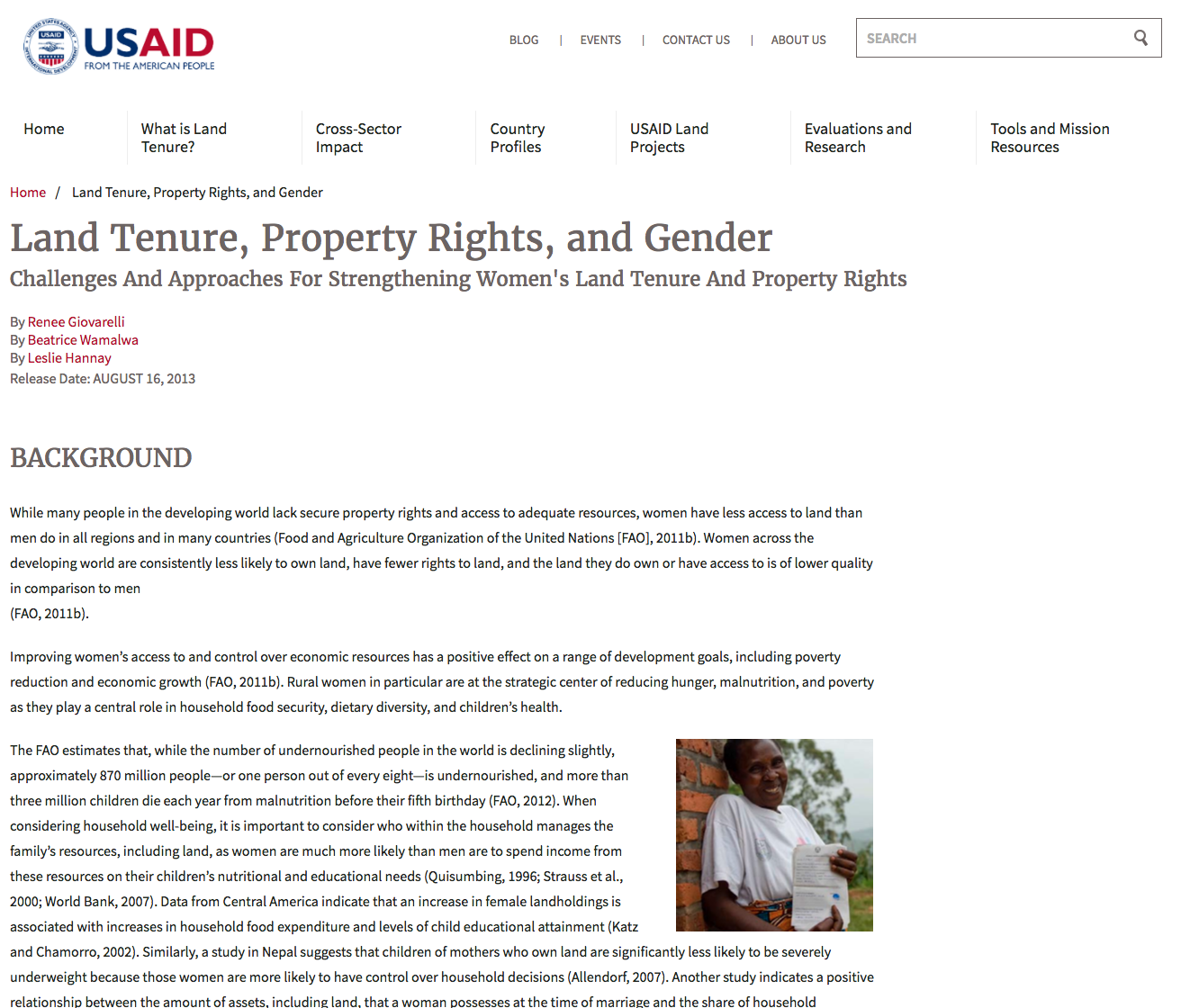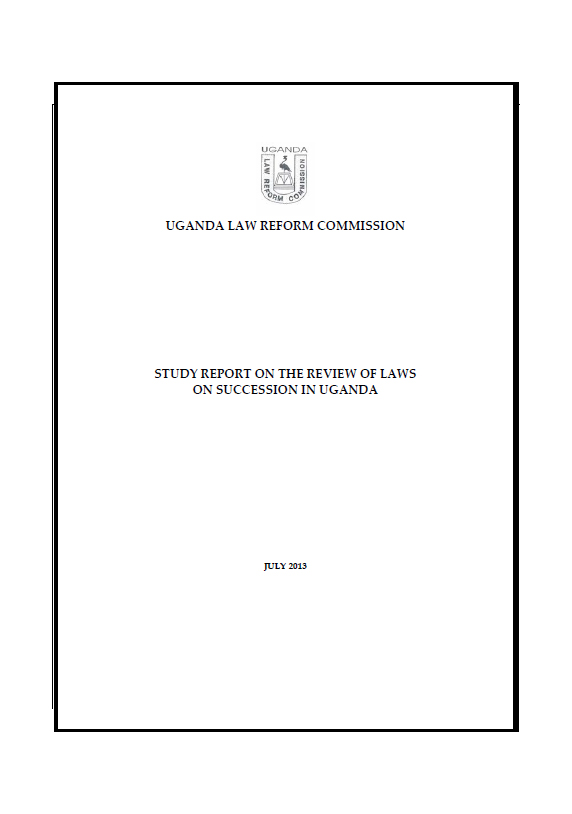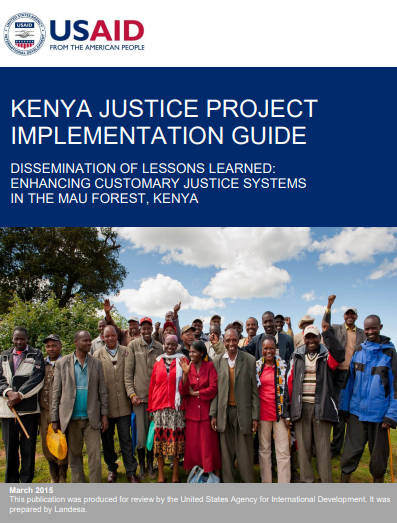Land Tenure, Property Rights, and Gender
While many people in the developing world lack secure property rights and access to adequate resources, women have less access to land than men do in all regions and in many countries (Food and Agriculture Organization of the United Nations [FAO], 2011b).











